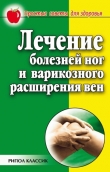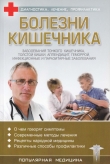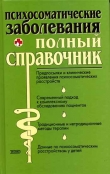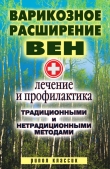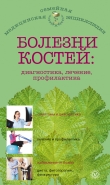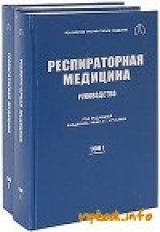
Текст книги "Респираторная медицина. Руководство (в 2-х томах)"
Автор книги: А. Чучалин
Жанр:
Медицина
сообщить о нарушении
Текущая страница: 191 (всего у книги 191 страниц)
type: dkli00064
ЗАКЛЮЧЕНИЕ
Эффективность обучающих инициатив для больных БА изучена наиболее полно. Компоненты оптимальной образовательной программы для пациентов с астмой включают знания о болезни и проводимой терапии; средства контроля терапии; психосоциологические навыки существования с хронической болезнью; план действия. Методы обучения навыкам оптимального самоуправления должны быть изучены и проверены на использование в общей системе здравоохранения. Медицинские работники сталкиваются с проблемой ограниченного времени и отсутствия помещения для обучения больных БА. Чтобы охватить оптимальным обучением всех больных, необходимы изменения в политике и финансировании здравоохранения.
Поскольку многие варианты подходов к формированию навыков самоуправления приводят к сходным результатам, они могут быть выбраны на основании предпочтений врача и пациента. Пациентам с тяжелой астмой целесообразно использовать основные методы мониторирования болезни, в то время как для больных среднетяжелой и интермиттирующей астмой возможны иные варианты, однако они должны быть изучены и проверены. Должны быть разработаны методы представления критической информации и навыков людям с низким уровнем грамотности. Необходимо проводить дальнейшие исследования, чтобы выявить взаимосвязь между обучением, оптимальным режимом ведения, отношениями врач – больной, приверженностью и результатами лечения.
В отличие от астмы, целесообразность обучения навыкам самоуправления больных ХОБЛ четко не определена. Наибольшее внимание должно быть уделено этой растущей группе хронических больных. Новые и более усовершенствованные методы самоведения обострений ХОБЛ должны быть ориентированы на распознавание симптомов и определенные стратегии управления симптомами, а не только на назначение антибиотиков и пероральных ГКС.
Данные о методах формирования приверженности крайне скудны. Только небольшое число исследований, проведенных в соответствии со строгими стандартами, представляет несколько стратегий подобной работы среди хронических больных. Многие из предложенных методов слишком сложны, отнимают много времени и дорогостоящи, что затрудняет их использование в общей системе здравоохранения. Даже если эти методы успешны, не удается определить компоненты, которые больше всего повлияли на рост приверженности.
Недавнее заключение о том, что она связана с социальными и экономическими различиями, заставляет искать новые подходы к решению этой проблемы. Пока вопрос всеобщей доступности квалифицированной медицинской помощи не будет решен, низкая приверженность и, как следствие, скудные результаты лечения сохранятся в определенных группах населения. Еще одно направление научного поиска – исследование способов, позволяющих нацелить пациентов на эффективное лечение, поскольку представление о потенциальной выгоде и неблагоприятных эффектах поддается корректировке.
9
СПИСОК ЛИТЕРАТУРЫ
1.Gibson PG, Powell H, Coughlan J, et al: Limited (information only) patient education programs for adults with asthma (Cochrane Review). In The Cochrane Library, Issue 3, 2001. Oxford: Update Software.
2.Wagner EH, Glasgow RE, Davis C, et al: Quality improvement in chronic illness care: A collaborative approach. J Qual Improv 27:63-80, 2001.
3.Wagner EH, Austin BT, Davis C, et al: Improving chronic illness care: Translating evidence into action. Health Affairs 20:64-78, 2001.
4.Clark NM, Janz NK, Becker MH, et al: Impact of self-management education on the functional health status of older adults with heart disease. Gerontologist 32:438-443, 1992.
5.Bandura A: Social Foundations of Thought and Action: A Social Cognitive Theory. Englewood Cliffs, NJ: Prentice-Hall, 1986.
6.Bandura A: Self-Efficacy: The Exercise of Control. New York: WH Freeman, 1977.
7.Schunck DJ: Self-efficacy and cognitive achievement: Implications for students with learning problems. J Learn Disabil 22:14-22, 1989.
8.National Asthma Education and Prevention Program, National Heart, Lung, and Blood Institute: Expert Panel Report 2: Guidelines for the Diagnosis and Management of Asthma, National Institutes of Health Publication No. 97-4051. Bethesda, MD: NHLBI, 1997.
9.Bolton MB, Tilley BC, Kuder J, et al: The cost and effectiveness of an education program for adults who have asthma. J Gen Intern Med 6:401-407, 1991.
10.Clark NM, Feldman CH, Evans D, et al: The impact of health education on frequency and cost of health care use by low income children with asthma. J Allerg Clin Immunol 78:108-115, 1986.
11.Gallefoss F, Bakke PS: Cost-effectiveness of self-management in asthmatics: A 1 year follow-up randomized, controlled trial. Eur Respir J 17:206-213, 2001.
12.Kauppinen R, Sintonene H, Tukiainen H: One-year economic evaluation of intensive vs conventional patient education and supervision for self-management of new asthmatic patients. Respir Med 92:300-307, 1998.
13.Kauppinen R, Sintonen H, Vilkka V, et al: Long-term (3-year) economic evaluation of intensive patient education for self-management during the first year in new asthmatics. Respir Med 93:283-289, 1999.
14.Lahdensuo A, Haahtela T, Herrala J, et al: Randomised comparison of guided self management and traditional treatment of asthma over one year. BMJ 312:748-752, 1996.
15.Carswell F, Robinson EJ, Hek G, et al: A Bristol experience: Benefits and cost of an 'asthma nurse' visiting the homes of asthmatic children. Bristol Med Chir J 104:11-12, 1989.
16.Lahdensuo A, Haahtela T, Herrala J, et al: Randomised comparison of cost effectiveness of guided self management and traditional treatment of asthma in Finland. BMJ 316:1138-1139, 1998.
17.Bailey WC, Richards JM, Brooks CM, et al: A randomised trial to improve self-management practice of adults with asthma. Arch Intern Med 150:1664-1668, 1990.
18.Булкина Л.С., Белевский А.С., Княжеская Н.П., Сосина Е.Е. Результаты обучения больных бронхиальной астмой, находящихся под амбулаторным наблюдением. / Пульмонология, 1996. – 1, с. 28-32.
19.Калиева А.Д., Сенкевич Н.Ю., Бримкулов Н.Н. Оценка Качества Жизни больных бронхиальной астмой. / Международный конгресс Interasthma'98., Москва, 1998. – 1., с.70.
20.Коровина О.В., Собченко С.А. Опыт работы школы для больных бронхиальной астмой. / Пульмонология. – 1991. 3, с. 14 – 19.
21.Невзорова В.А., Пащенко О.П., Кудрявцева В.А., Суровенко Т.Н. Оценка эффективности образовательных программ при бронхиальной астме. / Тезисы докладов 7 Национального конгресса “Человек и лекарство”, Москва 2000г. – с 144.
22.Сенкевич Н.Ю., Белевский А.С., Чучалин А.Г. Оценка влияния образовательных программ в пульмонологии (Астма – школ) на Качество жизни больных бронхиальной астмой (первый опыт применения вопросника SF-36 в пульмонологии). / Пульмонология. 1997, 3, с. 18 – 22.
23.National Heart, Lung, and Blood Institute: Global Initative for Asthma-revised. National Institutes of Health Publication No. 02-3659. Bethesda, MD: NHLBI, 2002.
24.National Heart, Lung and Blood Institute: National Asthma Education and Prevention Program: Guidelines for the diagnosis and management of asthma-update 2002. J Allerg Clin Immunol 110:S141-S219, 2002.
25.Center for Studying Health System Change (HSC): Community Tracking Study Physician Survey: Tracking Report No. 8, 2001 (www.hschange.org).
26.Aiolfi S, Confalonieri M, Scartabellati A, et al: International guidelines and educational experiences in an out-patient clinic for asthma. Monaldi Arch Chest Dis 50:477-481, 1995.
27.Hilton S, Sibbald B, Anderson HR, et al: Controlled evaluation of the effects of patient education on asthma morbidity in general practice. Lancet 1:26-29, 1986.
28.Huss K, Huss RW, Squire EN, et al: Computer education for asthmatics: What effects? J Nurs Care Qual 6:57-66, 1992.
29.Jenkinson D, Davison J, Jones S, et al: Comparison of effects of a self management booklet and audio cassette for patients with asthma. BMJ 297:267-270, 1988.
30.Maiman LA, Green LW, Gibson G, et al: Education for self-treatment by adult asthmatics. JAMA 241:1919-1922, 1979.
31.Moldofsky H, Broder I, Davies G, et al: Videotape educational program for people with asthma. Can Med Assoc J 120:669-672, 1979.
32.Osman LM, Abdalla MI, Beattie JA, et al: Reducing hospital admission through computer supported education for asthma patients: Grampian Asthma Study of Integrated Care (GRASSIC). BMJ 308:568-571, 1994.
33.Ringsberg KC, Wiklund I, Wilhelmsen L: Education of adult patients at an "asthma school": effects on quality of life, knowledge and need for nursing. Eur Respir J 3:33-37, 1990.
34.Sondergaard B, Davidsen F, Kirkeby B, et al: The economics of an intensive education programme for asthmatic patients. Pharmacoeconomics 1:207-212, 1992.
35.Thapar A: Educating asthmatic patients in primary care: A pilot study of small group education. Fam Pract 11:39-43, 1994.
36.Wilson SR, Scamagas P, German OF, et al: A controlled trial of two forms of self-management education for adults with asthma. Am J Med 94:564-576, 1993.
37.Mayo PH, Richman J, Harris HW: Results of a program to reduce admissions for adult asthma. Ann Intern Med 112:864-871, 1990.
38.Yoon R, McKenzie DK, Bauman A, et al: Controlled trial evaluation of an asthma education program for adults. Thorax 48:1110-1116, 1993.
39.George MR, O'Dowd LC, Martin I, et al: A comprehensive educational program improves clinical outcome measures in inner-city patients with asthma. Arch Intern Med 159:1710-1716, 1999.
40.Castro M, Zimmermann NA, Crocker S, et al: Asthma intervention program prevents readmissions in high healthcare utilizers. Am J Respir Crit Care Med 168:1095-1099, 2003.
41.Cowie RL, Revitt SG, Underwood MF, et al: The effect of a peak flow-based action plan in the prevention of exacerbations of asthma. Chest 112:1534-1538, 1997.
42.Garrett J, Fenwick JM, Taylor G, et al: Prospective controlled evaluation of the effect of a community based asthma education center in a multiracial working class neighborhood. Thorax 49:976-983, 1994.
43.Cote J, Cartier A, Robichaud P, et al: Influence on asthma morbidity of asthma education programs based on self-management plans following treatment optimization. Am J Respir Crit Care Med 155:1509-1514, 1997.
44.Allen RM, Jones MP, Oldenburg B: Randomized trial of an asthma self-management programme for adults. Thorax 50:731-738, 1995.
45.Jones KP, Mullee MA, Middleton M, et al: Peak flow based asthma self management: A randomised controlled study in general practice. Thorax 50:851-857, 1995.
46.Guevara JP, Wolf FM, Grum CM, et al: Effects of educational interventions for self management of asthma in children and adolescents: Systematic review and meta-analysis. BMJ 326:1-6, 2003 (bmj.com).
47.Gibson PG: Monitoring the patient with asthma: An evidence-based approach. J Allergy Clin Immunol 106:17-26, 2000.
48.Ignacio-Garcia JM, Gonzalez-Santos P: Asthma self-management education program by home monitoring of peak expiratory flow. Am J Respir Crit Care Med 151:353-359, 1995.
49.Zeiger RS, Heller S, Mellon MH, et al: Facilitated referral to asthma specialist reduces relapses in asthma emergency room visits. J Allergy Clin Immunol 87:1160-1168, 1991.
50.Gibson PG, Powell H, Coughlan J, et al: Self-management and regular practitioner review for adults with asthma (Cochrane Review). In The Cochrane Library, Issue 2, 2003. Oxford: Updated Software.
51.Abdulwadud O, Abramson M, Forbes A, et al: Evaluation of a randomised controlled trial of adult asthma education in a hospital setting. Thorax 54:493-500, 1999.
52.Bailey WC. Richards JM, Manzella BA, et al: Promoting self management in adults with asthma: An overview of the UAB program. Health Educ Q 14:345-355, 1987.
53.Bailey WC, Kohler CL, Richards JM, et al: Asthma self-management (through patient education). Arch Intern Med 59:2422-2428, 1999.
54.Berg J, Dunbar-Jacob J, Serelka SM: An evaluation of a self-management program for adults with asthma. Clin Nurs Res 6:225-238, 1997.
55.Blixen CE, Hammel JP, Murphy D, et al: Feasibility of a nurse-run asthma education program for urban African-Americans: A pilot study. J Asthma 38:23-32, 2001.
56.Brewin AM, Hughes JA: Effect of patient education on asthma management. Br J Nurs 4:81-101, 1995.
57.Gallefoss F, Bakke PS: How does patient education and self-management among asthmatics and patients with chronic obstructive pulmonary disease affect medication? Am J Respir Crit Care Med 160:2000-2005, 1999.
58.Ghosh CS, Ravindran P, Joshi M, et al: Reductions in hospital use from self-management training for chronic asthmatics. Soc Sci Med 46:1087-1093, 1998.
59.Grampian Asthma Study of Integrated Care (GRASSIC): Effectiveness of routine self monitoring of peak flow in patients with asthma. BMJ 308:564-567, 1994.
60.Hayward SA, Jorden M, Golden G, et al: A randomized controlled evaluation of asthma self management in general practice. Asthma Gen Pract 4:11, 1996.
61.Heard AR, Richards D, Alpers JH, et al: Randomized controlled trial of general practice based asthma clinics. Med J Aust 171:68-71, 1999.
62.Knoell DL, Pierson JF, Marsh CB, et al: Measurement of outcomes in adults receiving pharmaceutical care in a comprehensive asthma outpatient clinic. Pharmacotherapy 18:365-374, 1998.
63.Kotses H, Bernstein IL, Bernstein DI, et al: A self-management program for adult asthma. Part I. Development and evaluation. J Allergy Clin Immunol 95:529-540, 1995.
64.Kotses H, Stout C, McConnaughy K, et al: Evaluation of individualized asthma self-management programs. J Asthma 33:113-118, 1996.
65.Levy ML, Robb M, Allen J, et al: A randomized controlled evaluation of specialist nurse education following accident and emergency attendance for acute asthma. Respir Med 94:900-908, 2000.
66.Moudgil H, Marshall T, Honeybourne D: Asthma education and quality of life in the community: A randomised controlled study to evaluate the impact on white European and Indian subcontinent ethnic groups from socioeconomically deprived areas in Birmingham, UK. Thorax 55:177-183, 2000.
67.Mulloy E, Donaghy D, Quigley C, et al: A one-year prospective audit of an asthma education programme in an out-patient setting. Ir Med J 89:226-228, 1996.
68.Neri M, Migllori GB, Spanevello A, et al: Economic analysis of two structured treatment and teaching programs on asthma. Allergy 51:313-319, 1996.
69.Schott-Baer D, Christensen M: Research for practice: A pilot programme to increase self-care of adult asthma patients. Med Surg Nurs 8:78-83, 1999.
70.Shields MC, Griffin KW, McNabb WL: The effect of a patient education program on emergency room use for inner-city children with asthma. Am J Public Health 80:36-38, 1990.
71.Snyder S, Winder JA, Creer TL: Development and evaluation of an adult asthma self-management program: Wheelers anonymous. J Asthma 11:39-43, 1987.
72.Sommaruga M, Spanevello A, Migliori GB, et al: The effects of a cognitive behavioral intervention in asthmatic patients. Monaldi Arch Chest Dis 50:398-402, 1995.
73.De Oliveira MA, Faresin SM, Bruno VF, et al: Evaluation of an educational programme for socially deprived asthma patients. Eur Respir J 14:908-914, 1999.
74.Thoonen BPA, Schermer TRJ, van den Boom G, et al: Self-management of asthma in general practice, asthma control and quality of life: A randomized controlled trial. Thorax 58:30-36, 2003.
75.Cote J, Bowie DM, Robichaud P, et al: Evaluation of two different educational interventions for adult patients consulting with an acute asthma exacerbation. Am J Respir Crit Care Med 163:1415-1419, 2001.
76.Toelle BG, Peat JK, Salome CM, et al: Evaluation of a community-based asthma management program in a population sample of school children. Med J Aust 158:742-746, 1993.
77. Janson SL, Fahy JV, Covington JK, et al: Effects of individual self-management education on clinical, biological and adherence outcomes in asthma. Am J Med 115:620-626, 2003.
78.Charlton I, Charlton G, Broomfield J, Mullee MA: Evaluation of peak flow and symptoms only self-management plans for control of asthma in general practice. BMJ 301:1355-1359, 1990.
79.Turner MO, Taylor D, Bennett R, Fitzgerald JM: A randomized trial comparing peak expiratory flow and symptom self-management plans for patients with asthma attending a primary care clinic. Am J Respir Crit Care Med 157:540-546, 1998.
80.Lopez-Vina A, del Castillo-Arevalo F: Influence of peak expiratory flow monitoring on an asthma self-management education programme. Respir Med 94:760-766, 2000.
81.Adams RJ, Boath K, Homan S, et al: A randomized trial of peak-flow and symptom-based plans in adults with moderate-to-severe asthma. Respirology 6:297-304, 2001.
82.Verschelden P, Cartier A, L'Acheveque J, et al: Compliance with and accuracy of daily self-assessment of peak expiratory flows (PEF) in asthmatic subjects over a three month period. Eur Respir J 9:880-885, 1996.
83.Cote J, Carier A, Malo JL, et al: Compliance with peak expiratory flow monitoring in home management of asthma. Chest 113:968-972, 1998.
84.Kamps AW, Roorda RJ, Brand PL: Peak flow diaries in childhood asthma are unreliable. Thorax 56:180-182, 2001.
85.Reddel HK, Toelle BG, Marks GB, et al: Analysis of adherence to peak flow monitoring when recording of data is electronic. BMJ 324:146-147, 2002.
86.Chowienczyk PJ, Parkin ED, Lawson CP, et al: Do asthmatic patients correctly record home spirometry measurements? BMJ 309:1618, 1994.
87.Teeter JG, Bleecker ER: Relationship between airway obstruction and respiratory symptoms in adult asthmatics. Chest 113:272-277, 1998.
88.Rubinfeld AR, Pain MC: Perception of asthma. Lancet 1:882-884, 1976.
89.Burdon JG, Juniper EF, Kilhan KJ: The perception of breathlessness in asthma. Am Rev Respir Dis 126:825-828, 1982.
90.Kikuchi Y, Okabe S, Tamura G: Chemosensitivity and perception of dyspnoea in patients with a history of near-fatal asthma. N Engl J Med 330:329-334, 1994.
91.Gibson PG, Wang PJO, Hepperle MJG, et al: A research method to induce and examine a mild exacerbation of asthma. Clin Exp Allergy 22:525-532, 1992.
92.Chan-Yeung M, Chang JH, Manfreda J, et al: Changes in peak flow, symptom score, and the use of medications during acute exacerbations of asthma. Am J Respir Crit Care Med 154:889-893, 1996.
93.Wagner EH: The role of patient care teams in chronic disease management. BMJ 320:569-571, 2000. Griffiths C, Foster G, Barnes N, et al: Specialist nurse intervention to reduce unscheduled asthma care in a deprived multiethnic area: the east London randomized controlled trial for high risk asthma (ELECTRA). BMJ 328:144, 2004.
94.Powell H, Gibson PG: Options for self-management education for adults with asthma (Cochrane Review). In The Cochrane Library, Issue 2. Oxford: Update Software, 2003.
95.Ayres JG, Campbell LM: A controlled assessment of an asthma self-management plan involving a budesonide dose regimen. Eur Respir J 9:886-892, 1996.
96.Klein JJ, van der Palen J, Uil SM, et al: Benefit from the inclusion of self-treatment guidelines to a self-management program for adults with asthma. Eur Respir J 17:386-394, 2001.
97.Baldwin DR, Pathak UA, King R, et al: Outcome of asthmatics attending asthma clinics utilizing self-management plans in general practice. Asthma Gen Pract 5:31-32, 1997.
98.Белевский А.С., Булкина Л.С., Княжеская Н.П., Чучалин А.Г. Организация и проведение занятий в Астма – школе. Методические рекомендации МЗ и МП РФ 93/96., М., 1996. – 24 с.
99.Коровина О.В., Собченко С.А. Принципы организации индивидуализированного лечения больных бронхиальной астмой. / Тер. Архив. – 1991. – Т. 63, 12. – с. 120.
100.Williams MV, Baker DW, Honig EG, et al: Inadequate literacy is a barrier to asthma knowledge and self-care. Chest 114:1008-1015, 1998.
101.Bernard-Bonnin A, Stachenko S. Bonin D, et al: Self-management teaching programs and morbidity of pediatric asthma: A meta-analysis. J Allergy Clin Immunol 95:34-41, 1995.
102.Madge P, McColl J, Paton J: Impact of nurse-led home management training programme in children admitted to hospital with acute asthma: A randomised controlled study. Thorax 52:223-228, 1997.
103.Gibson PG, Talbot PI, Hancock J, et al: A prospective audit of asthma management following emergency asthma treatment at a teaching hospital. Med J Aust 158:775-778, 1993.
104.Ordonez GA, Phelan PD, Olinsky A, et al: Preventable factors in hospital admission for asthma. Arch Dis Child 78:143-147, 1998.
105.Haby MM, Waters E, Robertson CF, et al: Interventions for educating children who have attended the emergency room for asthma (Cochrane Review). In The Cochrane Library, Issue 3. Oxford: Update Software, 2003.
106.Alexander JS, Younger RE, Cohen RM, Crawford LV: Effectiveness of a nurse-managed program for children with chronic asthma. J Pediatr Nurs 3:312-317, 1988.
107.Wolf FM, Guevara JP, Grum CM, et al: Educational interventions for asthma in children (Cochrane Review). In The Cochrane Library, Issue 2. Oxford: Update Software, 2003.
108.Christiansen SC, Martin SB, Schleicher NC, et al: Evaluation of a school-based asthma education program for inner-city children. J Allergy Clin Immunol 100:613-617, 1997.
109.Bartholomew LK, Gold RS, Parcel GS, et al: Watch, discover, think, and act: Evaluation of computer-assisted instruction to improve asthma self-management in inner-city children. Patient Educ Couns 39:269-280, 2000.
110.Homer C, Susskind O, Alpert HR, et al: An evaluation of an innovative multimedia educational software program for asthma management: Report of a randomized, controlled trial. Pediatrics 106:210-215, 2000.
111.Yawn BP, Algatt-Bergstrom PJ, Yawn RA, et al: An in-school CD-ROM asthma education program. J School Health 70:153-159, 2000.
112.Krishna S, Francisco BK, Balas A, et al: Internet-enabled interactive multimedia asthma education program: A randomized trial. Pediatrics 111:503-510, 2003. Shames RS, Sharek P, Mayer M, et al: Effectiveness of a multicomponent self-management program in at-risk school-aged children with asthma. Ann Allergy Asthma Immunol 92:611-618, 2004.
113.Mannino DM, Homa DM, Akinbami LG, et al: Chronic obstructive pulmonary disease surveillance-United States, 1971-2000. Respir Care 47:1184-1199, 2000.
114.Monninkhof EM, van der Valk PDLPM, van der Palen J, et al: Self-management education for chronic obstructive pulmonary disease (Cochrane Review). In The Cochrane Library, Issue 2. Oxford: Update Software, 2003.
115.Blake RL Jr, Vandiver TA, Braun S, et al: A randomized controlled evaluation of a psychosocial intervention in adults with chronic lung disease. Fam Med 22:365-370, 1990.
116.Cockcroft A, Bagnall P, Heslop A, et al: Controlled trial of respiratory health worker visiting patients with chronic respiratory disability. BMJ 294:225-228, 1987.
117.Emery CF, Schein RL, Hauck ER, et al: Psychological and cognitive outcomes of a randomized trial of exercise among patients with chronic obstructive pulmonary disease. Health Psychol 17:232-240, 1998.
118.Gallefoss R: The effects of patient education in COPD in a 1-year follow-up randomized, controlled trial. Patient Educ Couns 52:259-266, 2004.
119.Gallefoss F, Bakke PS: Impact of patient education and self-management on morbidity in asthmatics and patients with chronic obstructive pulmonary disease. Respir Med 94:279-287, 2000.
120.Gourley GA, Portner TS, Gourley DR, et al: Humanistic outcomes in the hypertension and COPD arms of a multi-center outcomes study. J Am Pharm Assoc 38:586-597, 1998.
121.Howland J, Nelson EC, Barlow PB, et al: Chronic obstructive airway disease: Impact of health education. Chest 90:233-238, 1986.
122.Littlejohns P, Baveystock CM, Parnell H, et al: Randomised controlled trial of the effectiveness of a respiratory health worker in reducing impairment, disability, and handicap due to chronic airflow limitation. Thorax 46:559-564, 1991.
123.Sassi-Dambron DE, Eakin EG, Ries AL, et al: Treatment of dyspnea in COPD: A controlled clinical trial of dyspnea management strategies. Chest 107:724-729, 1995.
124.Solomon DK, Portner TS, Bass GE, et al: Clinical and economic outcomes in the hypertension and COPD arms of a multicenter outcomes study. J Am Pharm Assoc 38:574-585, 1998.
125.Watson PB, Town GI, Holbrook N, et al: Evaluation of a self-management plan for chronic obstructive pulmonary disease. Eur Respir J 10:1267-1271, 1997.
126.Семенюк С.А., Белевский А.С., Мещерякова Н.Н. Эффективность обучения больных ХОБЛ. / Пульмонология. 2007, 3.
127.Parcel GS, Swank PR, Mariotto MJ, et al: Self-management of cystic fibrosis: A structural model for educational and behavioral variables. Soc Sci Med 38:1307-1315, 1995.
128.Bartholomew LK, Czyzewski DI, Parcel GS, et al: Self-management of cystic fribrosis: Short-term outcomes of the Cystic Fibrosis Family Education Program. Health Educ Behav 24:652-666, 1997.
129.Mannino D, Homa D, Pertowski C, et al: Surveillance for asthma-United States, 1960-1995. MMWR Morb Mortality Wkly Rep 47:1-28, 1998.
130.Griffith SA: A review of the factors associated with patient compliance and the taking of prescribed medicines. Br J Gen Pract 40:114-116, 1990.
131.Bosley CM, Fosbury JA, Cochrane GM: The psychological factors associated with poor compliance with treatment in asthma. Eur Respir J 8:899-904, 1995.
132.Cochrane GM: Compliance and outcomes in patients with asthma. Drugs 52:453-457, 1996.
133.Apter AJ, Reisine ST, Affleck G, et al: Adherence with twice-daily dosing of inhaled steroids: Socioeconomic and health-belief differences. Am J Respir Crit Care Med 157:1810-1817, 1998.
134.DiMatteo MR, Lepper HS, Croghan TW: Depression is a risk factor for noncompliance with medical treatment: Meta-analysis of the effects of anxiety and depression on patient adherence. Arch Intern Med 160:2101-2107, 2000.
135.Lacasse Y, Rousseau L, Maltais F: Prevalence of depressive symptoms and depression in patients with severe oxygen-dependent chronic obstructive pulmonary disease. J Cardiopulm Rehabil 21:80-86, 2001.
136.Cole SA, Christensen JF, Raju MA, et al: Depression. In Feldman MD, Christensen JF (eds): Behavioral Medicine in Primary Care. Stamford, CT: Appleton & Lange, 1997.
137.Williams MV, Baker DW, Honig EG, et al: Inadequate literacy is a barrier to asthma knowledge and self-care. Chest 114:1008-1015, 1998.
138.Sackett E, Snow JC: The magnitude of compliance and noncompliance. In Sacket E, Hayes RB, Taylor DW (eds): Compliance in Health Care. Baltimore: John Hopkins University Press, 1995.
139.Simmons MS, Nides MA, Rand CS, et al: Trends in compliance with bronchodilator inhaler use between follow-up visits in a clinical trial. Chest 109:963-968, 1996.
140.Coutts JA, Gibson NA, Paton JY: Measuring compliance with inhaled medication in asthma. Arch Dis Child 67:332-333, 1992.
141.Eisen SA, Miller DK, Woodward RS, et al: The effect of prescribed daily dose frequency on patient medication compliance. Arch Intern Med 150:1881-1884, 1990.
142.Mann M, Eliasson O, Patel K, et al: A comparison of the effects of bid and qid dosing on compliance with inhaled flunisolide. Chest 101:496-499, 1992.
143.Bender B, Milgrom H, Rand C, et al: Psychological factors associated with medication nonadherence in asthmatic children. J Asthma 35:347-353, 1998.
144.Apter AJ, Boston RC, George M, et al: Modifiable barriers to adherence to inhaled steroids among adults with asthma: It's not just black and white. J Allergy Clin Immunol 111:1219-1226, 2003.
145.Legorreta AP, Christian-Herman J, O'Connor RD, et al: Compliance with national asthma management guidelines and specialty care: A health maintenance organization experience. Arch Intern Med 58:457-464, 1998.
146.Nides MA, Tashkin DP, Simmons MS, et al: Improving inhaler adherence in a clinical trial through the use of the nebulizer chronology. Chest 104:501-507, 1993.
147.Haynes R, McDonald H, Garg AX, et al: Interventions for helping patients follow prescriptions for medication (Cochrane Review). In The Cochrane Library, Issue 1. Oxford: Update Software, 2003.
148.Van Es SM, Colland VT, Nagelkerke AF, et al: An intervention programme using the ASE-model aimed at enhancing adherence in adolescents with asthma. Patient Educ Couns 44:193-203, 2001.
149.Bailey WC, Kohler CL, Richards JM, et al: Asthma self-management (through patient education). Arch Intern Med 59:2422-2428, 1999.
150.Devine EC, Pearcy J: Meta-analysis of the effects of psychoeducational care in adults with chronic obstructive pulmonary disease. Patient Educ Couns 29:167-178, 1996.
151.Kaplan SH, Gandek B, Greenfield S, et al: Patient and visit characteristics related to physicians' participatory decision-making style: Results from the Medical Outcomes Study. Med Care 33:1176-1187, 1995.


